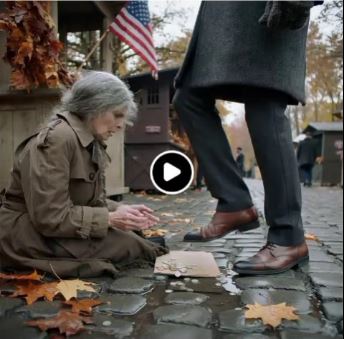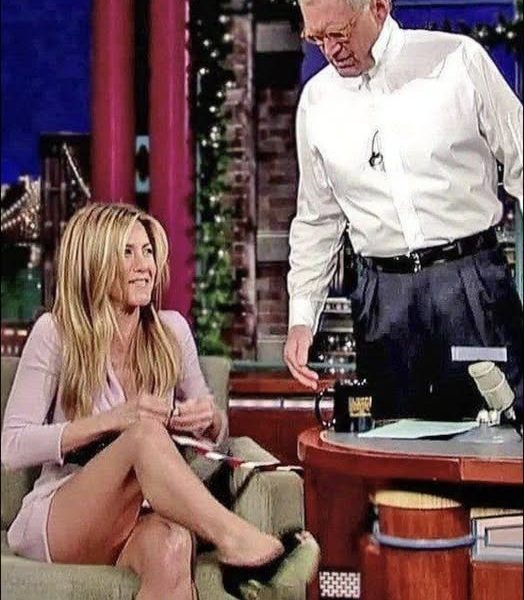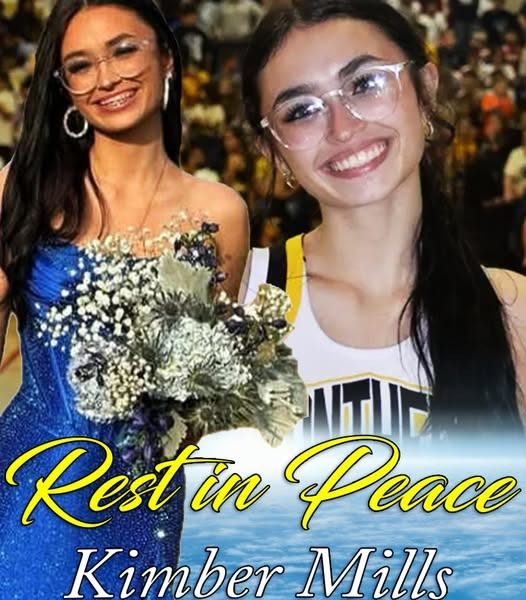I Adopted a Girl with Down Syndrome That No One Wanted Right After I Saw 11 Rolls-Royces Parking in Front of My Porch
They said I was too old, too lonely, and too broken to matter, until I adopted a baby girl no one wanted. One week later, 11 black Rolls-Royces pulled up to my porch, and everything I thought I knew about her changed.
I never thought I’d be writing something like this. I’m 73, widowed, and most people think that women my age should stick to knitting scarves, watching game shows, and waiting for the inevitable. But life didn’t hand me that kind of ending. No, it gave me a story that still makes my hands tremble when I tell it.
My name is Donna, and I’ve lived in the same weather-beaten house in small-town Illinois for almost five decades. I raised two boys here. I buried my husband here. I’ve seen this porch covered in snowfall and funeral flowers. I’ve lived a full life, yes, but nothing prepared me for what happened after my husband Joseph passed away.
When Joseph died, the silence hit like a freight train. After nearly 50 years of marriage, there’s no real way to prepare for that kind of emptiness. Without him, even the ticking clock on the wall seemed too loud. He had been my compass, my steady hand, and the man who always kept the coffee pot full and remembered to put gas in my car when I forgot.
The night after his funeral, I sat on the edge of our bed, holding his flannel shirt, still faintly smelling of aftershave and peppermint. I didn’t cry much. I just stared at the spot on the wall where his coat used to hang. I don’t know why, but the house felt like it had exhaled and gone hollow.
The only noises came from the strays I had taken in over the years, mostly cats and a couple of old dogs from the shelter that no one had ever adopted. My children hated that.
“Mom, it stinks in here,” Laura, my daughter-in-law, snapped one evening, crinkling her nose as she lit some kind of lavender-scented candle.
“You’re turning into some crazy cat lady,” my son Kevin added, looking around like he was embarrassed just being inside.
They stopped coming by after that, saying they were busy, though I saw their photos on social media, smiling at wine tastings and lake house parties. My grandkids once dropped in for cookies, but now they hardly text me back.
Christmas was the hardest. I’d make a pot of Earl Grey and sit by the window, watching snow pile up on the front steps, wondering how a house once so full of life could feel so silent.
I tried. I really did. I joined a gardening club. I started volunteering at the library. I even baked banana bread for the local fire station. But nothing filled the space Joseph had left behind. Grief, I’ve learned, doesn’t walk out the door; it lives in the hallway, waiting for you in every quiet moment.
Even in rooms full of people, I felt like a ghost slipping by unnoticed.
And then, one Sunday morning at church, something happened that changed everything.
I was helping arrange hymn books in the back room when I overheard two volunteers whispering by the coat rack.
“There’s a newborn at the shelter,” one said quietly. “A girl. She has Down syndrome. No one’s coming for her.”
“No one wants a baby like that,” the other replied. “Too much work. She’ll never live a normal life.”
Their words punched right through me. I didn’t even think. I turned around and said, “Where is she?”
The younger volunteer blinked. “Excuse me?”
“I want to see her,” I said.
Later that afternoon, I went to the shelter. The room was small and smelled faintly of formula and antiseptic. And there she was, so tiny and wrapped in a thin, faded blanket. Her fists were curled tight under her chin, and her lips made the softest little squeaks as she slept.
When I leaned over her crib, her eyes fluttered open. Big, dark, curious eyes. She stared at me as if she were trying to figure me out, and something inside me, something I thought had long gone numb, suddenly cracked wide open.
“I’ll take her,” I said.
The room went dead silent. A woman in a red cardigan looked up from her clipboard.
“Ma’am…” the social worker stammered. “At your age—”
“I’ll take her,” I repeated.
She stared at me for a long time, like she was waiting for me to take it back. But I didn’t.
Bringing that baby home felt like carrying light into a house that hadn’t seen sunlight in years. But not everyone saw it that way.
The neighbors started whispering. I caught them peeking through their curtains like they were watching some kind of freak show.
“That crazy widow,” I overheard Mrs. Caldwell mutter one day while watering her begonias. “First, all those animals, now she’s got a disabled baby?”
Kevin showed up three days later, face red with fury.
“Are you insane?” he yelled, walking into my kitchen like he still had a right to. “You’re 73! You can’t raise a baby. You’ll die before she even gets to high school!”
I stood at the stove, holding the baby close to my chest. Her tiny hand was gripping the collar of my cardigan like a lifeline.
“Then I’ll love her with every breath until that day comes,” I said calmly.
Kevin’s face twisted. “You’re humiliating this family.”
Family games
Family games
I looked at him for a moment, really looked at him. “Then you don’t deserve to call yourself family,” I said, and I walked over and shut the door behind him.
I named her Clara. There was a tiny onesie in her hospital bag that had the name stitched in purple thread. That was enough for me. Clara. It felt right.
Family games
She started smiling within a week. Every time she wrapped her fingers around mine, it felt like she’d been waiting her whole life for me to show up.
Family games
It was exactly seven days later when I heard the engines.
Not just one. Several. The kind of low, powerful hum that makes your skin prickle. I stepped onto the porch with Clara in my arms, and my breath caught.
Eleven black Rolls-Royces lined up in front of my crumbling little house. Their chrome gleamed in the afternoon sun, and their windows were so darkly tinted that I could not see a thing inside.


